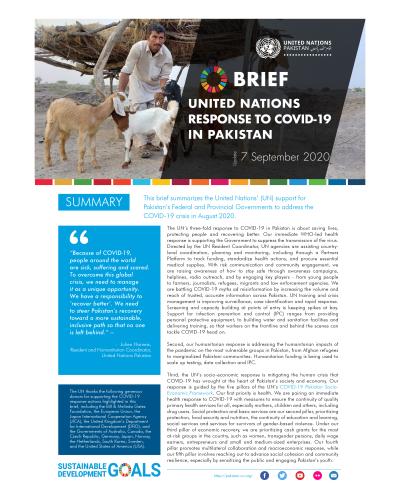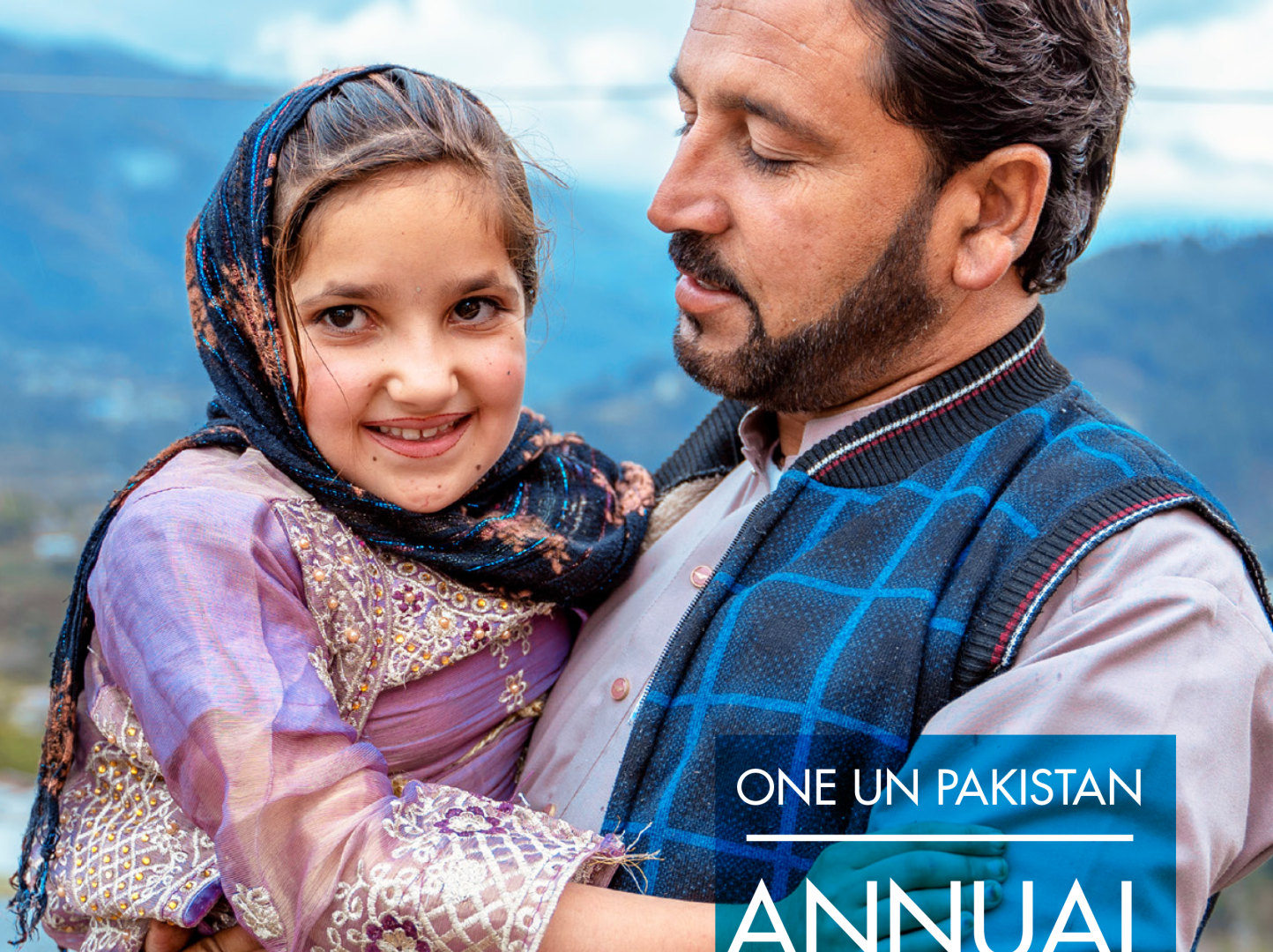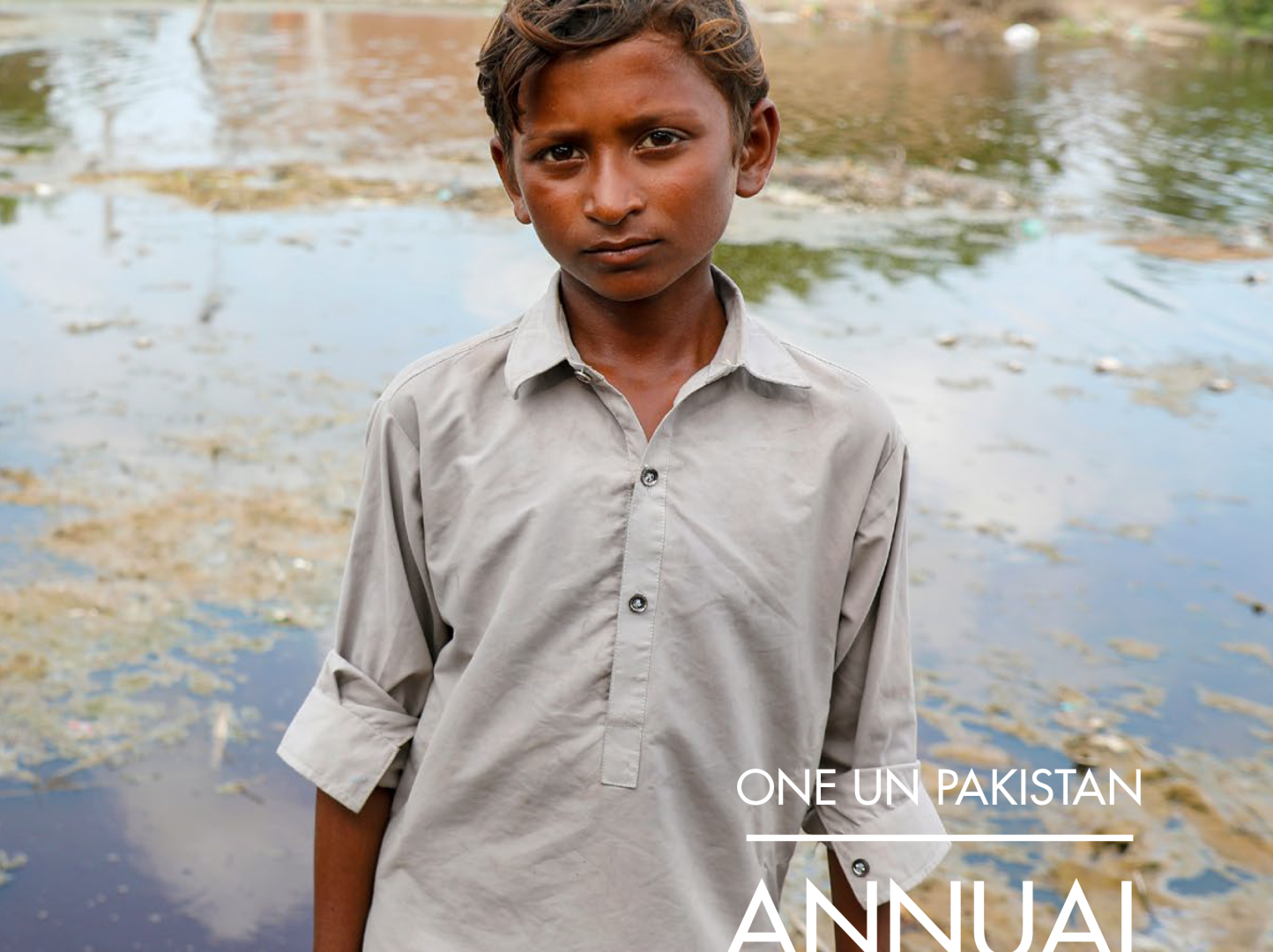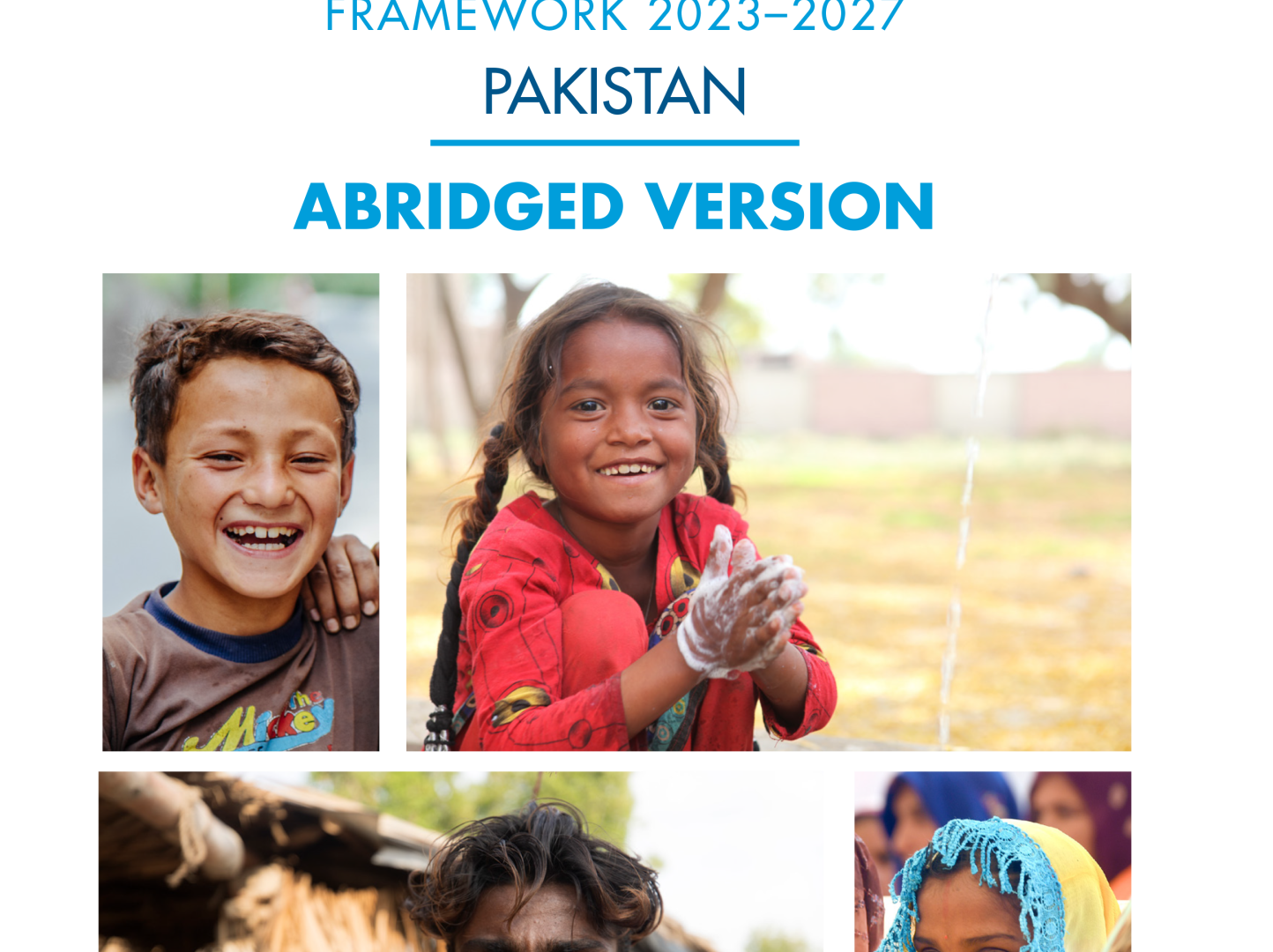Brief: United Nations response to Covid-19 in Pakistan, September 2020

The UN’s three-fold response to COVID-19 in Pakistan is about saving lives, protecting people and recovering better. Our immediate WHO-led health response is supporting the Government to suppress the transmission of the virus. Directed by the UN Resident Coordinator, UN agencies are assisting country level coordination, planning and monitoring, including through a Partners Platform to track funding, standardize health actions, and procure essential medical supplies. With risk communication and community engagement, we are raising awareness of how to stay safe through awareness campaigns, helplines, radio outreach, and by engaging key players – from young people to farmers, journalists, refugees, migrants and law enforcement agencies. We are battling COVID-19 myths ad misinformation by increasing the volume and reach of trusted, accurate information across Pakistan. UN training and crisis management is improving surveillance, case identification and rapid response. Screening and capacity building at points of entry is keeping spikes at bay. Support for infection prevention and control (IPC) ranges from providing personal protective equipment, to building water and sanitation facilities and delivering training, so that workers on the frontline and behind the scenes can tackle COVID-19 head on.
Second, our humanitarian response is addressing the humanitarian impacts of the pandemic on the most vulnerable groups in Pakistan, from Afghan refugees to marginalized Pakistani communities. Humanitarian funding is being used to scale up testing, data collection and IPC.
Third, the UN’s socio-economic response is mitigating the human crisis that COVID-19 has wrought at the heart of Pakistan’s society and economy. Our response is guided by the five pillars of the UN’s COVID-19 Pakistan Socio-Economic Framework. Our first priority is health. We are pairing an immediate health response to COVID-19 with measures to ensure the continuity of quality primary health services for all, especially mothers, children and others, including drug users. Social protection and basic services are our second pillar, prioritizing protection, food security and nutrition, the continuity of education and learning, social services and services for survivors of gender-based violence. Under our third pillar of economic recovery, we are prioritizing cash grants for the most at-risk groups in the country, such as women, transgender persons, daily wage earners, entrepreneurs and small and medium-sized enterprises. Our fourth pillar promotes multilateral collaboration and macroeconomic response, while our fifth pillar involves reaching out to advance social cohesion and community resilience, especially by sensitizing the public and engaging Pakistan’s youth.















